Red nodules in children can be deceptively challenging. While many malignant tumours common in...
.jpg?height=200&name=HCE%20HubSpot%20blog%20images%20600x350%20(56).jpg)
Manage testicular and male breast cancer, hair loss, androgen deficiency, dementia, reproductive health, cardiovascular health and more.
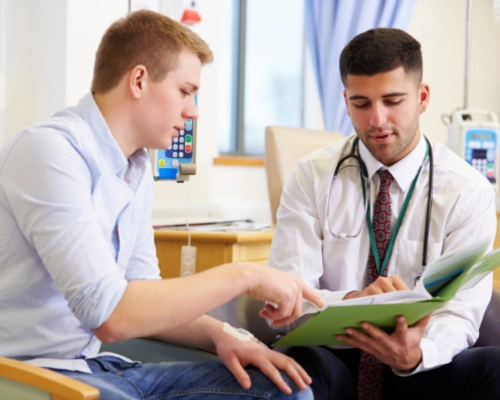
Gain the necessary skills to address common concerns among your male patients, improve outcomes and save lives. This course will support you to become a more "male friendly" GP equipped to uncover and treat male-specific health issues.
- This course will advance your confidence and competency in managing men's health presentations.
- Build a better rapport with your male patients and become their go-to confidant for gender-specific health issues.
- This course is for physicians, nurse practitioners, and degree-qualified nurses.
- CPD-accredited and university-reviewed.
You might also be interested in the Advanced Workshop of Non-Scalpel Vasectomy or the Primary Certificate of Sexual Health for Men.
Fulfils 50 hrs for medical professionals in Australia*
100% online
$1595
Special rates available
82.5 hrs
Self-paced
*provided an outcome measurement activity with a minimum of 5 hours is completed.
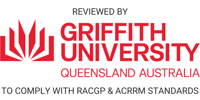
- Improve patient outcomes for penile conditions, reproductive problems, and genital inflammatory dermatoses.
- Save lives through early intervention in cases of testicular cancer and male breast cancer.
- Effectively treat male hair loss, assist with hormone management, and identify dementia.
- Provide preventive measures for cardiovascular health and weight control in men.
Get unlimited access to all course content, additional learning materials, ongoing post-course support, and more.
This module focuses on the steps in examining the male external genital organs to diagnose and manage benign and pre-malignant penile lesions and then moves into diagnosing and managing penile cancer. Images illustrate how these conditions may appear in the clinical setting. It then explains Peyronie’s disease and outlines the phases, signs and symptoms, diagnosis and management options for this condition. Male infertility is the final unit in this module. It describes the causes and how to prepare for diagnosis. This includes history, examination and investigation. The module concludes with outlining the management options for male infertility.
This module focuses on diagnosing and managing testicular cancer and then moves into male breast cancer. Unit one on testicular cancer details how to complete an examination, what to look for and how to assess a scrotal mass. Prognosis pathology, fertility and metastatic disease symptoms are discussed including longer term effects. Unit two focuses on male breast cancer and outlines the steps for examination including the lymph nodes and what to look for. Possible symptoms are described and causes discussed. Diagnostic tests and treatment options are outlined. Unit two concludes with information on genetic testing, survival rates and recurrent breast cancer management.
Unit one of this module focuses on male hair loss. It discusses how to diagnose and manage hair loss in men including the two main types – androgenetic alopecia and alopecia areata. Other types of hair loss such as telogen effluvium, anagen hair loss, inflammatory skin disease, infections and systemic disease are also included in this unit. Hair anatomy and clinical images support the learning. Treatment options and management are outlined including possible complications for some treatments.
Unit two is about genital inflammatory dermatoses and guides the diagnosis, treatment and management of genital inflammatory skin diseases in men including genital psoriasis, eczema, balanitis, lichen sclerosus and lichen planus. Clinical images are part of this unit to assist with identification of these dermatoses.
This module focuses on the screening and diagnosis of androgen deficiency and then outlines managing patients with this condition and determining whether to refer to an expert. It explains the hypothalamic-pituitary-testicular axis, adrenal androgens and testosterone action. Androgen deficiency is described as well as the classification and causes of male hypogonadism. The diagnostic approach including signs and symptoms of androgen deficiency are detailed. Diagrams and clinical images are featured. Functional and late onset hypogonadism management options are outlined including lifestyle measures and the benefits and risks of pharmacology.
This module focuses on screening for dementia in men within the context of a mental health assessment and diagnosing and managing dementia including knowing when to refer to a specialist. Unit one introduces an overview of male mental health issues and stresses the importance of mental health screening and lists possible disorders and comorbidities. Cognitive decline and depression are discussed including how dementia may be worsened by other psychiatric conditions. The risk factors for dementia and test options to rule out other causes are outlined. Subsyndromal depression and cognitive plasticity are discussed. Multiple contributors, common behaviours and other dementia causes are detailed including Parkinson’s and Lewy body dementia. The approach, diagnosis and monitoring are included. Treatment options are outlined for managing behavioural and psychological symptoms of dementia. It discusses neuropsychiatric symptoms and recognises agitation as one of the challenging behaviours. Dementia management, referral options, screening tools and training complete this module.
This module focuses on ways to maintain cardiovascular health and prevent heart disease. It outlines ways to maintain weight control and prevent obesity. Graphs and charts are used to demonstrate the effects of exercise on men. The relationship between obesity in Australia and chronic conditions is outlined including metabolic syndrome. Treatment options for obesity include lifestyle, medications, surgery and counselling. Assessment of a patient’s symptoms, recognising and managing behavioural change techniques, recognising masculinity and motivating patients are a feature of this module. The impact of age-related sarcopenia is discussed and the challenges this presents for the obese male. Information and statistics about the effects of exercise and nutrition complete this module.
This module focuses on the anatomy of the testes, scrotum and inguinal region. Content includes clinical problems of benign swellings, cancer, pain and impaired supply to male anatomy. Anatomical images of each area are a feature to reinforce learning. The module describes the anatomy of the testes and possible clinical problems and moves to the scrotum anatomy and associated clinical problems including lymph spread from scrotum to penis, hydrocoele and varicocele. The spermatic cord and possible clinical problems are outlined including vasectomy information and potential hazards. Content covers abdominal apertures, inguinal and femoral rings, inguinal canal and inguinal triangle, and looks at patent processus vaginalis (and hernia risk). Various hernias including abdominal hernias, groin and scrotal swellings, strangulated hernias and referred pain are outlined.
This module focuses on the role of the medical practitioner in the management of conditions that commonly affect men. These include diabetes and myocardial infarcts, hypertension and strokes and more generally, in the prevention of disease, minimising suicide risk and optimising good health. It commences with cardiovascular, diabetes, strokes and hypertension statistics and the impact of lifestyle choices on health outcomes. Three patient case approaches including history, priorities, what matters most to the patient, risk factors, information gathering, next steps, motivation for lifestyle changes and ongoing management are a feature of this course. Data on suicide risk in Australia and why these statistics may continue to rise are covered. The role of the medical practitioner is discussed and encourages practitioners to engage with male patients for better health outcomes. Reasons are provided for medical practitioners to prioritise their own health.
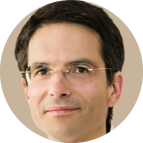
Professor Mathis Grossmann is a physician-scientist trained in both basic biology and clinical endocrinology. He is Professor of Medicine at the Department of Medicine, University of Melbourne, Austin Health, Australia. As a Consultant Endocrinologist at Austin Health, he runs Endocrine Men’s Health and Endocrine Breast Cancer Clinics.
Prof Grossmann graduated with an MD from Heidelberg University Medical School and did his internship in Munich, Germany. He then spent four years in basic research at the National Institutes of Health, USA, and obtained a PhD at the Walter and Eliza Hall Institute in Melbourne, followed by clinical training leading to FRACP. He joined the University of Melbourne at Austin Health in 2006.
His research focuses on the roles of reproductive hormones in health and disease. His group conducts observational and interventional trials in men with 1) low testosterone and chronic disease, 2) hypogonadism, 3) prostate cancer receiving androgen deprivation therapy, and 4) women with breast cancer receiving aromatase inhibition to understand how reproductive hormones regulate musculoskeletal health and glucose homeostasis, both at the clinical and the molecular level.
He has >150 peer reviewed publications and book chapters with more than 7,000 citations and a H-index of 46.
Editorial board memberships include the Journal of Clinical Endocrinology and Metabolism, Journal of the Endocrine Society, Clinical Endocrinology (Oxford), Current Opinion in Endocrine and Metabolic Research, and he is Associate Editor of the Asian Journal of Andrology.
Committee memberships include the US Endocrine Society Endocrine Self-Assessment Program (ESAP) and the Endocrine Society of Australia Council.

Professor Peter Reaburn recently retired as Professor and Head of Exercise and Sport Science at Bond University where he remains an Honorary Adjunct Professor. Prof Reaburn remains an active researcher focused on health, performance, and successful ageing in masters athletes. He is an award-winning university educator having won university and national teaching awards and citations for both undergraduate teaching and postgraduate supervision. Prof Reaburn is a masters athlete with a passionate belief in the value of exercise as medicine.
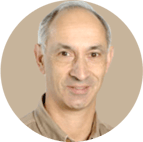
Clinical Academic Lead (Back to Base Days) Melbourne Clinical School, The University of Notre Dame
Honorary Principal Fellow Department of Anatomy & Neuroscience, The University of Melbourne
Associate Professor Norman Eizenberg has taught anatomy to medical students (at Melbourne and Monash Universities) and surgical trainees for more than 40 years. His main areas of research and scholarship are in medical education (including student learning of anatomy) and in anatomical variations (including their surgical implications). He was awarded an Honorary Fellowship Degree (in 2016) by the Royal Australasian College of Surgeons in recognition of “significant work in anatomy and of contributions to the College” and is currently Anatomy Specialty Editor for the ANZ Journal of Surgery.
A/Prof Eizenberg’s biggest role was project leader of the recently completed ANATOMEDIA Online which is a comprehensive, interactive learning platform exploring anatomy from multiple perspectives. So far, ANATOMEDIA has received four national or international awards, including the Australian Publishers Association "Best teaching & learning package in tertiary education" (in 2008).
Meanwhile, he managed to keep his hand in clinical practice after-hours as a GP and received Life Membership “for 30 years extraordinary service as a volunteer doctor at matches” by AJAX Amateur Football Club. He was also fortunate to be a Victorian Australian of the Year Finalist (in 2014) for “outstanding contribution: anatomist, doctor and educationalist”.
Outside interests besides organised sport include nature walks and contemporary music. A/Prof Eizenberg is a bit of a film buff and reads books on biography or history (which like anatomy and unlike him, never become outdated).
.png?width=143&height=143&name=Divyanshu%20Dua%20(1).png)
Dr Divyanshu Dua has worked as a Consultant Medical Oncologist at the Canberra Region Cancer Services since July 2016. He previously worked as a Staff Specialist in Medical Oncology in rural Victoria.
Dr Dua’s experience and training in medicine and oncology spans across three continents including Asia, Europe, and Australia. He specialises in lung cancers, thoracic malignancies, and genitourinary malignancies. He has a special interest in cancer in geriatric patients and a keen interest in medical services development and hospital management.
After doing most of his physician training in Adelaide, Dr Dua went on to do a clinical fellowship at the Guys Hospital in London in drug development, early phase clinical trials, and thoracic malignancies.
In his spare time, Dr Dua is a sports fan and enjoys watching and playing cricket.
.png?width=143&height=143&name=Joe%20Kosterich%20(3).png)
Dr Kosterich writes for numerous medical and mainstream publications and is a regular on radio and television. He is often called to give opinions in medico legal cases, is clinical editor of Medical Forum Magazine, adjunct professor (teaching) at UWA and a lecturer at Curtin Medical School.
Medical Advisor to Medicinal Cannabis company Little Green Pharma and Chairman of Australian Tobacco Harm Reduction Association, Dr Kosterich has self-published two books: Dr Joe’s DIY Health and 60 Minutes To Better Health, and maintains a website and blog with health information and commentary.
Previously he held senior positions in the Australian Medical Association and sat on numerous industry and government boards. He has extensive corporate experience in the setting up and management of medical centres and in helping businesses maintain a healthy workforce.
Through all this he continues to see patients as a GP each week.
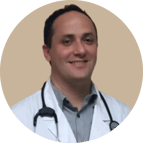
Family & Bariatric Physician - Board Certified
AOBFP & ABOM
Dr Brad Lipson is a family medicine expert in Boca Raton, Florida.
Dr Lipson is an alumnus of Nova Southeastern University in Fort Lauderdale, Florida, with a doctorate in osteopathic medicine (D.O.) after graduating from the University of Miami with a B.S. in psychobiology and minor in business administration. He completed training as chief resident at the family practice residency program at Wellington Regional Medical Center in Wellington, Florida. He received his family practice board certification from the American Osteopathic Board of Family Physicians. He is affiliated with the American Osteopathic Association, American College of Osteopathic Family Practitioners, and the Florida Osteopathic Medical Association.
Dr Lipson was born and raised in South Florida; he is married with two children, speaks Spanish, and enjoys Asian culture, geography, and computer technology. His interests include heart attack and stroke prevention, diabetes (diabetology), cholesterol (lipidology), obesity / metabolic syndrome, high blood pressure, men's health, and sleep disorders. He is a board certified family physician. Fellow of the American Society for Preventative Cardiology.
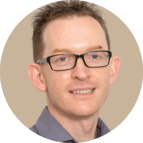

Dr Henry Yao is a urological surgeon with a special interest in uro-oncology, minimally invasive surgery (robotic and laparoscopic surgery), and reconstructive urology. He completed his undergraduate medical degree at The University of Melbourne with first class honours. Dr Yao completed his urology training in Melbourne and is a fellow of the Royal Australasian College of Surgeons.
Dr Yao completed a year of training at Western Health as the Advanced Laparoscopic and General Urology Fellow. He has subsequently completed further fellowship training in Robotic Surgery and Uro-oncology at one of the largest hospitals in the UK, where he worked in a high-volume cancer expert referral centre. Dr Yao also has a focused interest in reconstructive urology and has published work in this area.
Dr Yao maintains a strong interest in medical research and has published 20 peer-reviewed journal articles to date. He is actively involved in the supervision of students completing research degrees. His main research interest is in the area of cancer survivorship and improving the quality of life for cancer patients.
Dr Yao always strives to provide compassionate and wholistic care for his patients. He provides care in all areas of general urology, with a focused interest in uro-oncology and reconstructive urology. He is also fluent in Mandarin.
$1595
*provided an outcome measurement activity with a minimum of 5 hours is completed.
Bundle two courses and save 5%, or three courses and save 10% upon enrolment.
Talk to us about deferred payment options, registrar scholarships and special rates.
*For Australian residents only: Online course prices are shown exclusive of GST. If you are GST-registered, please enter a valid ABN at checkout to ensure GST is not applied. Otherwise, 10% GST will be added at checkout. View our FAQ for more information.
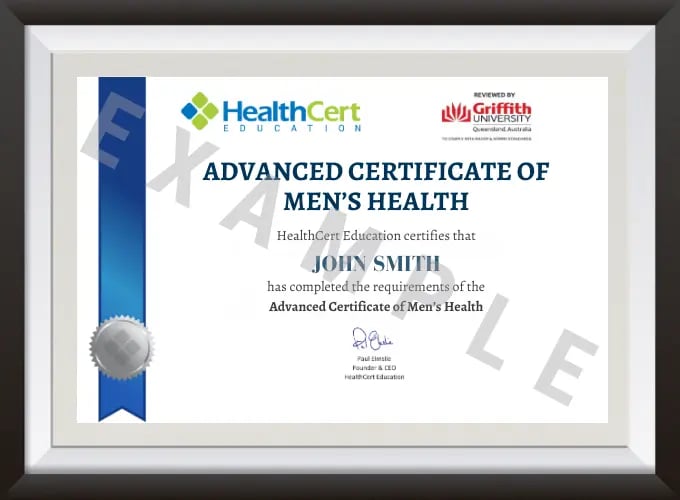
Great course! it is very relevant to all practising GPs. Who knew that there is a pathologist "secret". Every GP should know this!
Dr M. Parashar
Highly satisfied. Real patients and cases enhance the learning experience. I will attend the advanced course.
Dr N. Kazi
Don't miss this course! It's interesting, practical and enjoyable. After attending courses for 30 years, I rank this as number one. The course is very useful to all doctors who diagnose and treat skin lesions. Top marks to the organisers.
Dr P. Laundy
Everything was very relevant and easy to understand. Certainly in a very different league to all the other courses I have attended.
Dr M. Kaur
I wish I had completed this course two years ago. My time in general practice so far has not enhanced my diagnostic or surgical skills and I have been scared about skin checks! I actually feel not only confident but empowered. A fantastic course! Thank you!
Dr A. Mooney

HealthCert courses have become the standard by which you gauge all others.
Dr K. Abolarinwa
Good courses with excellent speakers. I particularly enjoyed the case study scenarios which helped to integrate the knowledge gained.
Dr A. Tucker
This is the pathway to improve your confidence and evolve into the GP you aspire to be.
Dr S. Shinwari
| RACGP Activity Number | ACRRM Activity Number | Activity Title | Education Hours | Performance Hours | Outcome Hours | ||
|---|---|---|---|---|---|---|---|
| 479888 | 38484 | Male Anatomy and Clinical Problems 2 | 479888 | 38484 | 5 | 6 | 0 |
| 479872 | 38482 | Dementia in men | 479872 | 38482 | 4 | 6 | 0 |
| 479860 | 38464 | Male hair loss and genital inflammatory dermatoses | 479860 | 38464 | 4 | 6 | 0 |
| 479849 | 38463 | Testicular Cancer and Male Breast Cancer | 479849 | 38463 | 3.5 | 6 | 0 |
| 479840 | 38462 | Penile conditions & Male reproduction check | 479840 | 38462 | 4 | 6 | 0 |
| 479890 | 38485 | GP Cases in Men’s Health | 479890 | 38485 | 4.5 | 6 | 0 |
| 479868 | 38481 | Androgen deficiency | 479868 | 38481 | 4 | 6 | 0 |
| 479882 | 38483 | Cardiovascular health and weight control in men | 479882 | 38483 | 5.5 | 6 | 0 |
| 810038 | 38486 | Penile conditions and male reproduction check Outcome Improvement Activity | 810038 | 38486 | 0 | 0 | 8.5 |
| Total hours | 34.5 | 48 | 8.5 | ||||
View the CPD Hours for all HealthCert Education activities.
The purpose of outcome measurement activities is to improve your clinical confidence in managing an identified learning gap. Outcome measurement activities are not a requirement of our Professional Certificate of Advanced Certificate courses; they are a requirement for Australian CPD purposes.
HealthCert Education provides a variety of outcome measurements activities to suit your needs:
The Advanced Certificate of Men's Health is tailored for physicians who wish to improve patient outcomes by managing common male health issues in general practice.
This course is for physicians, nurse practitioners, and degree-qualified nurses. The prerequisite for this Advanced Certificate course is the successful completion of the HealthCert Professional Certificate of Men’s Health (or a qualification deemed equivalent). HealthCert also highly recommends successful management of at least 25 cases of men’s health issues prior to enrolment.
Participants do not have to pass an IELTS test but, as the courses are delivered in English, proficiency in listening, reading and writing English is assumed.
Participants will require access to a computer/laptop, an internet connection and a basic level of technology proficiency to access and navigate the online learning portal.
This certificate course meets the minimum 50 hours CPD annual requirement across all three mandatory CPD activity types, provided an outcome measurement activity with a minimum of five hours is completed. You may use an optional HealthCert outcome measurement activity or develop your own.
Outcome measurement activities are not a requirement of Professional or Advanced Certificates.
Upon successful completion of the course requirements, course participants will receive the Advanced Certificate
This certificate course:
To learn more about the delivery of certificates in Australia and overseas, please visit our FAQs.
Men's Health Pathway
This course is the second stage of the three-part men's health pathway. The full pathway is Professional Certificate of Men's Health, Advanced Certificate Men's Health, and Professional Diploma of Men's Health.
You might also be interested in HealthCert's Advanced Workshop of Non-Scalpel Vasectomy or the Primary Certificate of Sexual Health for Men.
This organisation is an RACGP-accredited CPD provider under the RACGP CPD Program.




Don't see your question? Explore other faqs or talk to us.
Fees will vary based on the program and study option selected (fully online vs online + optional practical workshop). Payments can be made upfront or in monthly instalments. Special rates and various payment options are available. GP registrars and doctors in training enjoy a scholarship of up to $500. Talk to us to learn more.
Completion of any HealthCert course or attendance at an event will enable you to access the HealthCert Alumni Program which includes:
HealthCert Education is pleased to issue digital credentials for alumni. Digital credentials are a permanent online record of your successful completion of a HealthCert course and are issued to all course participants in addition to PDF certificates. If you are based in Australia, you also have the option to order a hard copy of your digital certificate for a small additional fee.
The recommended study duration of this certificate course is 82.5 hours, which includes study of the pre-course activities and readings, online lectures, live tutorials, and online assessment. This self-paced course offers the flexibility of 100% online study in your own time, at your own pace, in your own home or office, with no mandatory face-to-face requirements. You are not required to be online at specific times but can view and replay video lectures at your convenience.
All HealthCert courses meet World Federation of Medical Education standards. This certificate course qualifies for CPD hours from the Royal Australian College of General Practitioners (RACGP) and the Australian College of Rural and Remote Medicine (ACRRM) in Australia. It is recognised by the Royal New Zealand College of General Practitioners (RNZCGP) in New Zealand. It is recognised by the Hong Kong College of Family Physicians (HKCFP) in China. It is a self-submitted activity in Dubai and the United Kingdom. It is a self-submitted activity through the College of Family Physicians in Canada. If you live or work outside one of the above-mentioned countries, please contact us on admin@healthcert.com to discuss whether this course can be recognised in your country.
Want to stay up-to-date with the latest case studies, podcasts, free video tutorials and medical research articles pertinent to primary care?
Our Education Advisors can assist you with any queries and tailor our education pathway to suit your current expertise, interests and career goals.